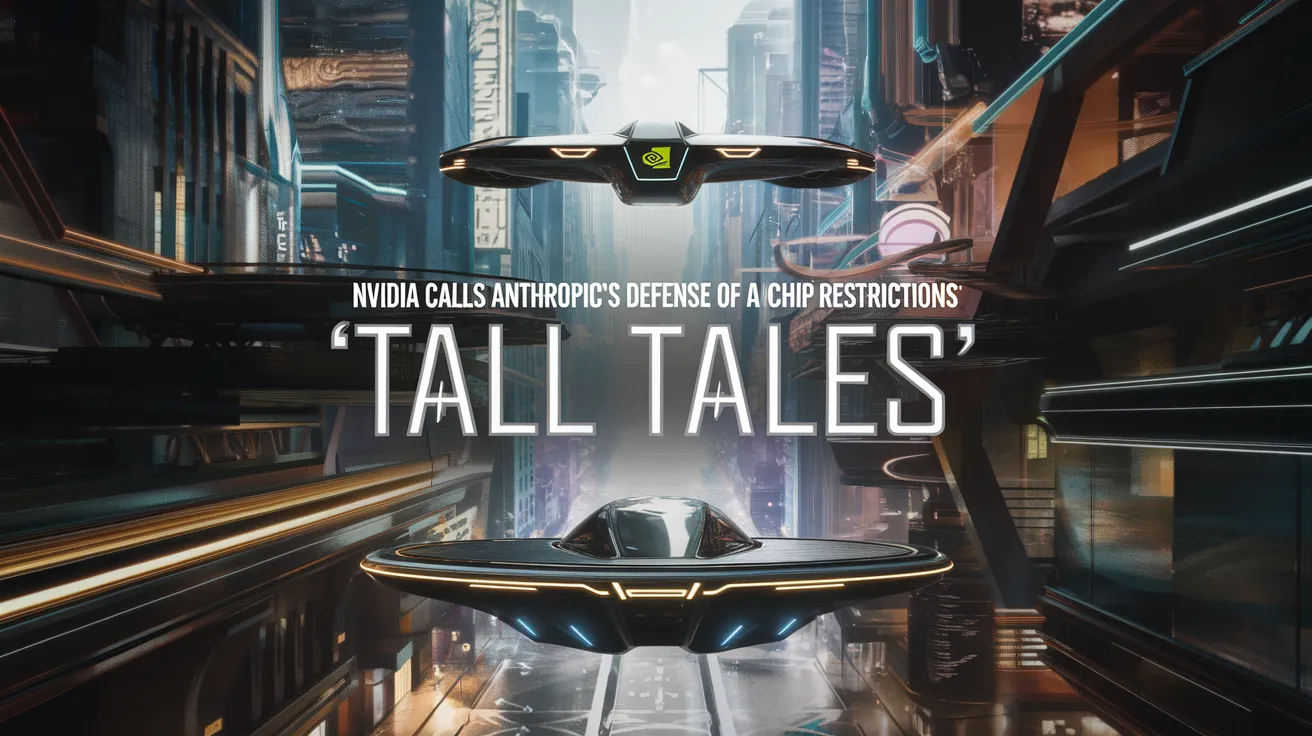Nvidia Calls Anthropic’s Defense of AI Chip Restrictions ‘Tall Tales’

The ongoing debate surrounding artificial intelligence policy has intensified as Nvidia has publicly criticized Anthropic amidst impending U.S. chip export restrictions set to take effect on May 15. In a rare public clash, a spokesperson for Nvidia expressed concerns about claims made by Anthropic regarding smuggling tactics for advanced AI chips. “American firms should focus on innovation and rise to the challenge, rather than tell tall tales that large, heavy, and sensitive electronics are somehow smuggled in ‘baby bumps’ or ‘alongside live lobsters,’” the spokesperson stated.
Anthropic’s Call for Stricter Controls
Anthonropic, an AI startup heavily backed by Amazon, has been advocating for tighter export controls and enforcement measures. In a recently published blog post, the company claimed that Chinese smuggling techniques involved embedding chips in “prosthetic baby bumps” and concealing them alongside lobsters. Their argument highlights the strategic importance of controlling compute access, which they deem vital in the escalating arms race for frontier AI technologies.
AI Diffusion Rule and Competitive Landscape
The upcoming export restrictions, labeled the “AI Diffusion Rule,” aim to prevent rival nations like China from advancing in AI. These rules, established during former President Joe Biden’s administration, introduce strict global export controls on advanced AI chips and model weights. Intel’s founder previously suggested that another layer of restrictions could be forthcoming under President Donald Trump, adding uncertainty to the existing policies.
Nvidia’s Counterargument
In response, Nvidia criticized the use of policy as a means to limit competitiveness within the industry. A spokesperson claimed, “China, with half of the world’s AI researchers, has highly capable AI experts at every layer of the AI stack. America cannot manipulate regulators to capture victory in AI.” This statement reflects Nvidia’s belief in a fair competition landscape, highlighting the capabilities of China’s AI workforce.
Statements from Both Companies
Despite the public discord, both companies have underscored their commitment to maintaining the United States’ technological leadership. An Anthropic spokesperson reiterated their support for strong and balanced export controls that safeguard America’s infrastructure development while ensuring democratic values in AI’s future.
The Bigger Picture
Notably, Nvidia CEO Jensen Huang recently acknowledged in Washington, D.C. that China is making significant strides in the AI field. During discussions with trade officials, he expressed that China is “not behind” the U.S. and commended Huawei as a globally competitive tech company. Huang’s remarks suggest a new level of respect for China’s advancements in computing and AI technology, signaling a shift in the competitive landscape between the nations.
This high-profile clash between Nvidia and Anthropic underscores the complexities and tensions involved in AI policy and international competitiveness as both sides navigate the evolving landscape of technology regulation.